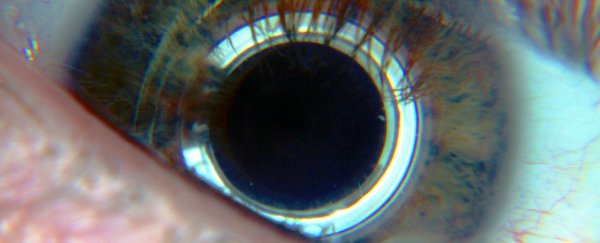Within the next 200 years, humans will have become so merged with technology that we'll have evolved into "God-like cyborgs", according to Yuval Noah Harari, an historian and author from the Hebrew University of Jerusalem in Israel.
Harari researches the history of the human species, and after writing a new book on our past, he now believes that we're just a few short centuries away from being able to use technology to avoid death altogether - if we can afford it, that is.
"I think it is likely in the next 200 years or so Homo sapiens will upgrade themselves into some idea of a divine being, either through biological manipulation or genetic engineering of by the creation of cyborgs: part organic, part non-organic," Harari said during his presentation the Hay Festival in the UK, as Sarah Knapton reports for the Telegraph. "It will be the greatest evolution in biology since the appearance of life … we will be as different from today's humans as chimps are now from us."
Obviously, we should take Harari's predictions with a grain of salt, but while they sound more suited to science fiction than real life, they're not actually that out-there. Many researchers believe that we've already started down the path towards a cyborg future; after all, many of us already rely on bionic ears and eyes, insulin pump technology and prosthetics to help us survive. And with researchers recently learning how to send people's thoughts across the web, subconsciously control bionic limbs and use liquid metal to heal severed nerves, it's not hard to imagine how we could continue to use technology to supplement our vulnerable human bodies further.
Interestingly, Harare's comments came just a few days after UK-based neuroscientist Hannah Critchlow from Cambridge University got the Internet excited by saying that it could be possible to upload our brains into computers, if we could build computers with 100 trillion circuit connections. "People could probably live inside a machine. Potentially, I think it is definitely a possibility," Critchlow said during her presentation at the festival.
But Harari warned that these upgrades may only be available to the wealthiest members of society, and that could cause a growing biological divide between rich and poor - especially if some of us can afford to pay for the privilege of living forever while the rest of the species dies out.
If that sounds depressing, the alternative is a future where instead of us taking advantage of technology, technology takes advantage of us, and artificial intelligence poses a threat to our survival, as Elon Musk, Stephen Hawking, and Bill Gates have all predicted.
Either way, one thing seems pretty clear - our future as a species is now inextricably linked with the technology we've created. For better or for worse.
